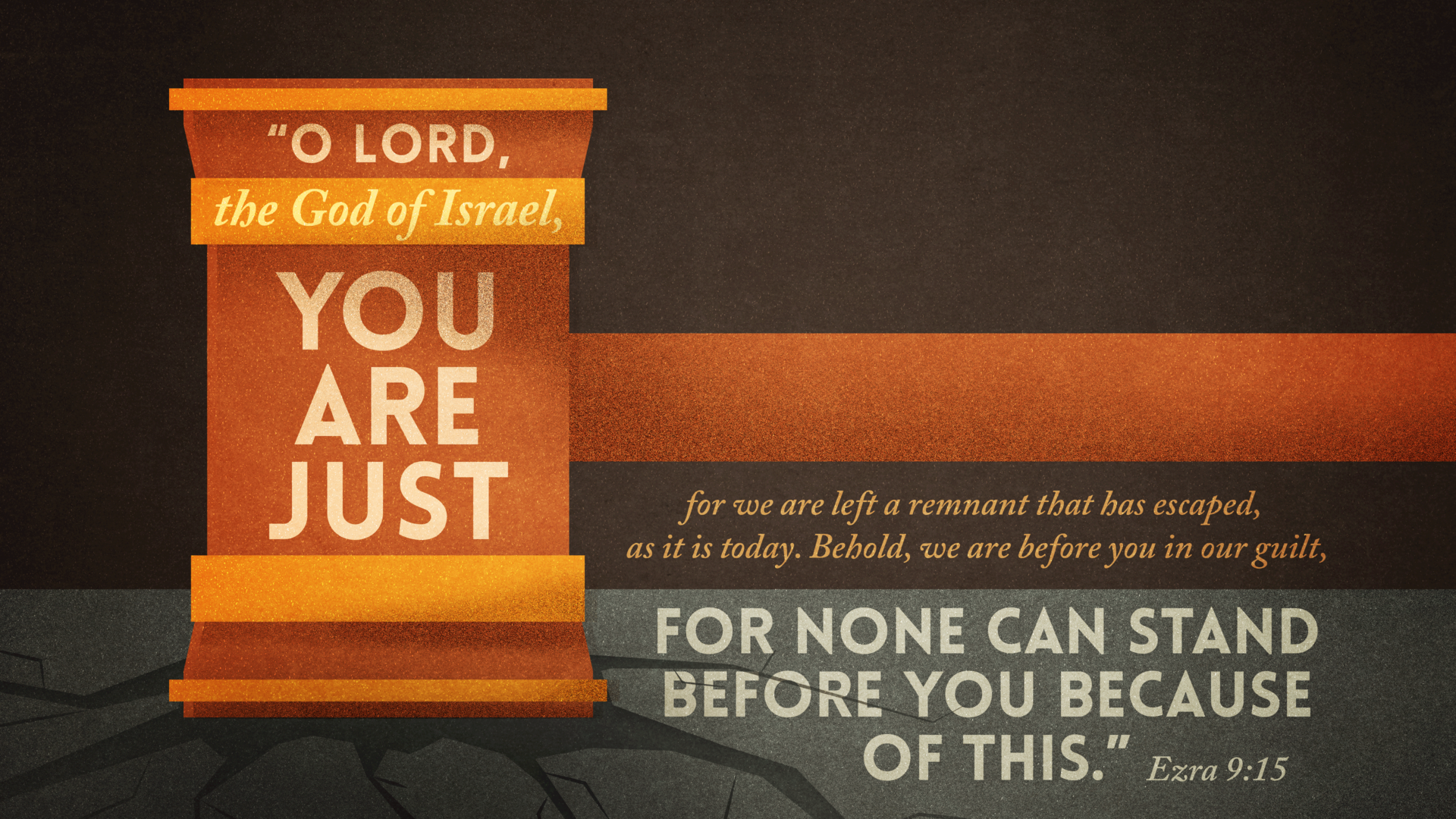“Attributes of God” sounds like a stuffy theological phrase that barely relates to how we live our Christian lives. In fact, most of us (me included) have to sit with a dictionary in hand to understand the $100 words some theologians use to describe the character of God.
But these attributes are also important—and vitally so. I like what theologian Amy Peeler said on a recent episode of the Holy Post podcast: “Our lives depend upon who God is.”1
And they really do.
The definition of God is the difference between God (with a capital G) and the gods of other monotheistic and polytheistic world religions. The God of Israel and the father of Jesus is specific. He isn’t a generic deity we can re-create in our heads or in the pages of our literature. It’s the attributes of God, which are ultimately manifested in Jesus, that make him unique in the history of the world.
Because we know who God is, we can trust him, follow him, and build our lives on what he says. All of that is impossible without a clear understanding of who he is through the attributes we discover in the Bible and in the life of Jesus.
- What are the attributes of God?
- How can we know what God is like?
- Defining the attributes of God
- Want to know what God is like? Look at Jesus
- Dig deeper
What are the attributes of God?
We all have attributes. We have generic ones that all humans share. We all have a body. We are intelligent. We have a sense of morality (as flawed as it can be at times).
We also have attributes that are unique–our hair color, height, eye color, etc.
Attributes are simply a way of describing something. That’s where we have problems with the attributes of God.
How do you describe the indescribable?
A quote sometimes attributed to Augustine says it best: “God is beyond all description, yet within every description.”
Human words simply don’t do God justice. Every word we use to describe God with is a compromise, and in some way faulty.
Yet the attributes of God are our attempts, however inadequate, to put the essence of God into human language. They include things like omnipresence, omnipotence, and others you’ll read about below.
In his book Theological Sentences, my former theology professor Sam Mikolaski describes God’s attributes like this: “An attribute is a fundamental quality of God’s being. They are perfections of God’s nature. They are inherent qualities. They are essential or permanent qualities. … They [say] that God is this and not that.”2
How can we know what God is like?
Of course, God’s attributes are fundamentally different from our own. We can look at our spouse or our neighbor and experience at least some of his or her attributes through our senses. Many human attributes are self-evident.
But God isn’t like us. The Bible describes this in Isaiah 55:8–9: “‘For my thoughts are not your thoughts, neither are your ways my ways,’ declares the LORD. ‘For as the heavens are higher than the earth, so are my ways higher than your ways and my thoughts than your thoughts.'”
The $100 theological word for this is God’s “transcendence,” which is sometimes included in a listing of God’s attributes. The Pocket Dictionary of Theological Terms says transcendence is, “The attribute of God that refers to being wholly and distinctly separate from creation (although always actively involved in and with it as well).”3
Because the Lord is transcendent and beyond our ability to comprehend, he must reveal himself for us to know anything about him. Christians believe that God, out of his great love for humanity, chose to reveal himself to us. He tells us about himself in two ways.
1. General revelation
Anyone who’s ever been awestruck by a starry sky, looked at sea creatures, or wondered at the human body can recognize (even if they won’t admit it) the creator’s greatness.
The Bible tells us that God created “the heavens and the earth” (Gen 1:1), or in the minds of the ancient world, the entire universe. Through our observations of what God made, all people can learn about the character and attributes of God.
Paul famously wrote of the pagans of his era, “For his invisible attributes, namely, his eternal power and divine nature, have been clearly perceived, ever since the creation of the world, in the things that have been made. So they are without excuse” (Rom 1:20).
Yet we’re limited in what general revelation can tell us about who God is. In his chapter on general revelation in A Theology for the Church, Russell Moore writes: “The Scriptures maintain that general revelation points to the mystery of the universe, but it does not disclose the meaning of creation—a meaning unveiled in Christ (Eph 1:10). Thus, even from the beginning, God’s Word was needed to interpret general revelation.”4
2. Special revelation
Nature can tell us there is a creator. It can let us know of that creator’s power and his wisdom, but it cannot introduce us to him personally. For that, we need the Bible and, ultimately, Jesus. A number of gods in religions around the world today could be the powerful god we see in creation, but only the Christian God can be the one described in the Bible and illustrated through the life of Jesus.
Through special revelation, God revealed his attributes to specific people at specific times, including through dreams, visions, events, angels, etc., as described in the Bible.
Most completely, we know who God is through Jesus. He is the most complete revelation of the attributes of God. Paul writes, “[Jesus] is the image of the invisible God, the firstborn of all creation” (Col 1:15).
While on our own we are helpless to understand the attributes of God, he has chosen to reveal himself to us through the natural world, the Bible, and most fully through Jesus, his Son.
Defining the attributes of God
You’ll find almost as many lists of attributes of God as there are theologians who have written about him. None are conclusive. All the lists include overlapping attributes that can often make it difficult to define where one ends and the next begins.
For this article, I’m using the list of God’s attributes from Westminster Shorter Catechism.
God is spirit
God is spirit, and those who worship him must worship in spirit and truth.
—John 4:24
Because God is spirit (as Jesus himself said in John 4:24), he is immaterial, which means he isn’t made of matter.
Paul used this concept to contrast the God of the Bible with the pagan gods during his address at the Areopagus in Acts 17: “Being then God’s offspring, we ought not to think that the divine being is like gold or silver or stone, an image formed by the art and imagination of man” (v. 29).
God’s spirituality means we can worship him wherever we are. We don’t need to be at church. Physically, we’ve never been closer to God and never further away than we are right now.
God is infinite
But who is able to build [God] a house, since heaven, even highest heaven, cannot contain him? Who am I to build a house for him, except as a place to make offerings before him?
—2 Chronicles 2:6
We cannot contain the God of the Bible within any attribute we assign to him. He is limitless in every respect. No space can hold him: he is omnipresent. No knowledge escapes him: he is omniscient. Nothing is more powerful than him: he is omnipotent.
Pondering God’s infiniteness leads to worship as the only reasonable response. As we’re reminded in Job 11, we can study God and his attributes forever and never finish the task. That’s awe-inspiring!
God is eternal
Lord, you have been our dwelling place in all generations. Before the mountains were brought forth, or ever you had formed the earth and the world, from everlasting to everlasting you are God.
—Psalm 90:1–2
It’s almost impossible to imagine this, but God existed before time began—and will exist after time ends. He exists outside of time. Joel B. Carini writes this in the Lexham Survey of Theology about God’s eternal attribute: “While time has passed, God is the same. To God, time is like a great canvas spread before him, every moment of which he can take in simultaneously. To him, all times are present. A thousand years in our experience are as nothing in God’s eyes (Ps 90:4).”5
Like I mentioned earlier, these attributes overlap, sometimes a great deal. That’s among the reasons why there are so many different lists of the attributes of God. Some people may combine attributes that others do not.
There is certainly overlap between the attributes of infinity and eternal. In many ways, eternal is simply God’s attribute of infinity as related to time. It also overlaps with “unchangeable.” Since God is outside of time, he doesn’t change. He was the same in the eons before creation as he is today, and he is the same today as he will be hundreds of billions of years from now.
Because God is infinite, we can rest in the understanding that God always has enough time to fulfill his purposes. We may feel the stress of time because for us time is a finite resource. But that’s not so with God. Everything he sets out to do will be completed in his perfect time. We can be patient and trust him because of this.
God is unchangeable
Every good gift and every perfect gift is from above, coming down from the Father of lights, with whom there is no variation or shadow due to change.
—James 1:17
Though God has existed from eternity past through today and into eternity future, he hasn’t and won’t change during this time. He was perfect a billion years ago, and he will be perfect a billion years from now. Change would make God either worse or better, but that’s impossible.
Any change we understand in God comes from our side of the relationship. It’s because we see him differently, not because he is different.
Because God is unchangeable, we can again completely trust him. Not only is he unchangeable, but his purposes are unchangeable. We know that what God wants today, he will want in the future. That gives us confidence as we seek his will in our world.
Sometimes this attribute is called God’s immutability.
God is wisdom
Oh, the depth of the riches and wisdom and knowledge of God! How unsearchable are his judgments and how inscrutable his ways!
—Romans 11:33
God’s attribute of wisdom is more than just being omniscient (all-knowing). Not only does God know everything, but he is able to use that knowledge perfectly.
In his book The Doctrine of God, Gerald Bray describes the wisdom of God like this, “The wisdom of God is thorough and co-extensive with his plan and creation. There is nothing which escapes his attention, and our lives are entirely in his hands.”6
As God guides us, we can rest in the understanding that he has perfect insight into what we need. His guidance is never out of step and never incomplete. He shares his wisdom with us because he loves us and wants the best for our future.
God is holy
Exalt the LORD our God, and worship at his holy mountain; for the LORD our God is holy!
—Psalm 99:9
God isn’t like us. Often we think of holiness as a synonym to purity. While that’s a part of it, the core of God’s holiness is his otherness. The creator is not the creation.
God is other than his creation because of his other attributes (among other reasons). God is unchangeable; we are always changing. God is eternal; we are time-bound. God is infinite; we are finite.
God is other than us because he is pure and incorruptible. The Bible teaches that God is without sin. God’s holiness has a purifying effect on everything unholy it touches. In Deuteronomy 4:24, the Bible gives us a picture of this when it describes God as a “consuming fire.”
Throughout Scripture (and particularly in one-on-one encounters with God and his angelic messengers, called theophanies), God’s holiness has led men and women into times of deep and meaningful worship (see Moses in Exodus 3, Gideon in Judges 6 and 13, and Isaiah in Isaiah 6).
God is just

Yet you have been righteous in all that has come upon us, for you have dealt faithfully and we have acted wickedly.
—Nehemiah 9:33
Easton’s Bible Dictionary describes God’s justness as “that perfection of his nature whereby he is infinitely righteous in himself and in all he does, the righteousness of the divine nature exercised in his moral government.”7
To say God is just is to say that he acts in a way that all get what they deserve. In his justice, God cares for everyone, including the unrighteous, and intends for all to come into a relationship with him (1 Tim 2:4).
God’s justice and his goodness compliment but don’t contradict one another. God acts in love because he is just, and he acts justly because he loves.
Because God is just, he defines what justice is. We must base our perception of justice upon his word and his action within history.
God’s justice (or his just-ness) leads to Christians pursuing justice within their individual lives and their broader communities. Christian faithfulness includes seeking to be fair in our dealings with others and to expect our community structures to do likewise.
God is good
The LORD is merciful and gracious, slow to anger and abounding in steadfast love.
—Psalm 103:8
Many of the most popular descriptions of God are wrapped up within the attribute of his goodness, including his mercy, his grace, and especially his love. In essence it is, as Matthew Easton describes it generally within his Bible dictionary, God’s benevolence toward his creation.8
God cares for his creation, particularly human beings, and acts consistently within that truth.
Just as God’s justice demands that sinners are accountable for their sin, his goodness demands that he offer them an opportunity for repentance. God always acts in a good manner even when that means he must give us the consequences of our sinful behavior.
The hinge of history came when God’s goodness and his justice came together at Calvary, with the death of God’s son as payment for the sins of the world. First John 3:16–17 says, “By this we know love, that [Jesus] laid down his life for us, and we ought to lay down our lives for the brothers.” The Bible also tells us that God gave his son for us while we were yet his enemy (Rom 5:8). God’s goodness and love for us lead us to love others in his name (1 John 4:19).
God is truth
I am the way, and the truth, and the life. No one comes to the Father except through me.
—John 14:6
God both speaks and acts honestly in all his ways, but he is also the source of all truth. Because God is truth, his written word (the Bible) and living Word (Jesus) are completely trustworthy in all they speak about and in all they do.
As opposed to human words and actions, God’s word is eternally true—just as true when he first revealed it as it is today—and it will be no more or less true a billion years from now.
God’s truthfulness gives us confidence that the promises he has given throughout the Bible are true. We can rely on those promises without fear.
Want to know what God is like? Look at Jesus
The attributes of God ultimately lead us to Jesus. He is the perfect embodiment of who God is and how he works in the world.
Paul tells us Jesus is “the image of the invisible God” (Col 1:15). Jesus tells his disciples in John 14:9, “If you have seen me, you have seen the Father.”
Because we know God and Jesus are one, each of the attributes above are also attributes of the eternal Word of God, Jesus.
Yet he did willingly lay down some of these attributes when he took on human form and came to earth through the incarnation. Paul describes this amazing act of humility in Philippians 2:6–8 when he writes, Jesus “who, though he was in the form of God, did not count equality with God a thing to be grasped, but emptied himself, by taking the form of a servant, being born in the likeness of men.”‘
Any study of the attributes of the God of the Bible will eventually lead to answering the question, “Who is Jesus?”
Dig deeper
You and I could study the attributes of God for another hundred years and not come close to exhausting the topic. And that’s without turning to sources outside of the Bible!
Here are a few ideas of how you can dig deeper into the attributes of God.
1. Study the Bible
God’s Word is the starting point for how to understand the attributes of God. Consider taking each of the attributes of God and looking at the Bible verses that speak to them. Logos Bible app’s Factbook tool (available even in the free edition) provides you with an entry on each of the attributes of God. Those entries all provide a list of verses that show each of the attributes. Also, a basic concordance will list out any of the verses that relate to particular attributes.
2. Look at Bible dictionaries
Most Bible dictionaries include not only an overview of God’s attributes but also individual entries on some (if not all) of the attributes. Some of my favorites include Easton’s Bible Dictionary (which admittedly is more than a century old but still strong and inexpensive), the Holman Illustrated Bible Dictionary, and the Lexham Survey of Theology. The Lexham Bible Dictionary is included in the Logos Bible app for free.
3. Check out the many books on the attributes of God
There are many top-notch books that relate to the attributes of God. If you’re looking for a devotional treatment of the topic with a heavy focus on applying it to your daily life, check out God Is: A Devotional Guide to the Attributes of God by Mark Jones. Sam Storms’s small book on the Attributes of God provides a nice overview of the topic as well.
4. Review some of the other listings of the attributes
Like I mentioned earlier in this article, different theologians have broken out their lists of attributes differently. Take a look at these different versions because they each provide a different perspective and emphasize different parts of God’s character. You’ll also notice they divide up and classify the attributes differently.
Conclusion
The attributes of God are an incredible and foundational study in theology. Our relationship with God depends on us continually learning who he is and how he wants to manifest his character within us.
So keep studying! Expect God to reveal himself to you as you do.
- February 8, 2023, Holy Post podcast bonus episode.
- Samuel J. Mikolaski, Theological Sentences (Union City, NJ: BookWhirl, 2013), 3.4.10.
- Stanley Grenz et al., The Pocket Dictionary of Theological Terms (Downers Grove, IL: InterVarsity Press, 1999), 115.
- Daniel L. Akin et al., A Theology for the Church (Nashville: B&H Academic, 2014), 96.
- Joel B. Carini, Lexham Survey of Theology (Bellingham, WA: Lexham Press, 2018).
- Gerald Bray, The Doctrine of God (Downers Grove, IL: InterVarsity Press, 1993), 220.
- M. G. Easton, Illustrated Bible Dictionary and Treasury of Biblical History, Biography, Geography, Doctrine, and Literature (New York: Harper & Brothers, 1893), 401.
- Easton, Illustrated Bible Dictionary, 401.









